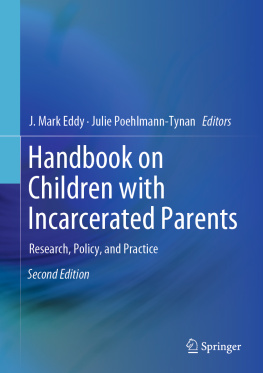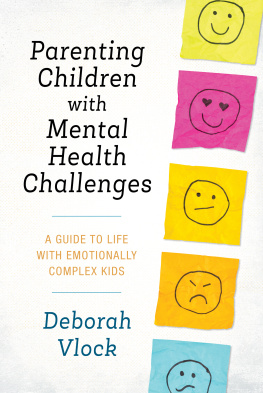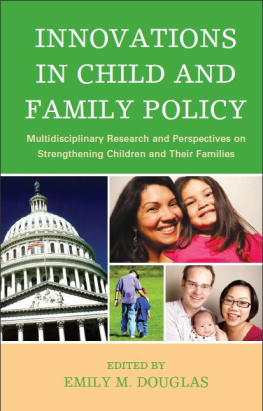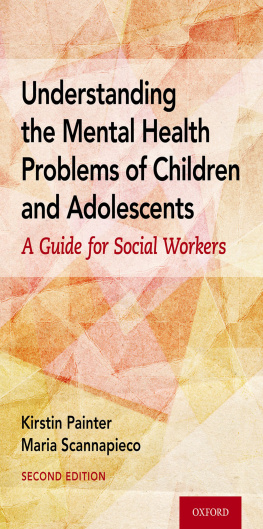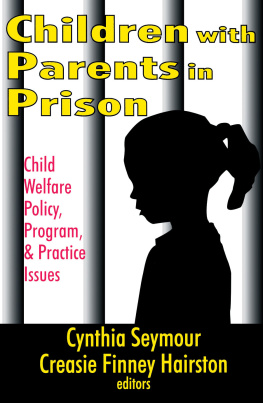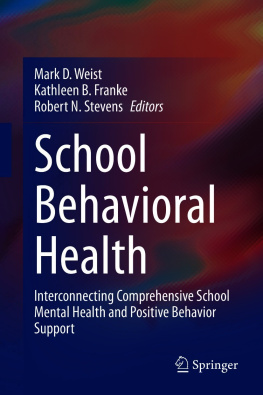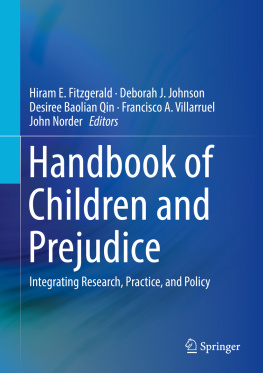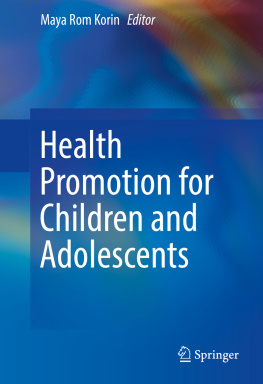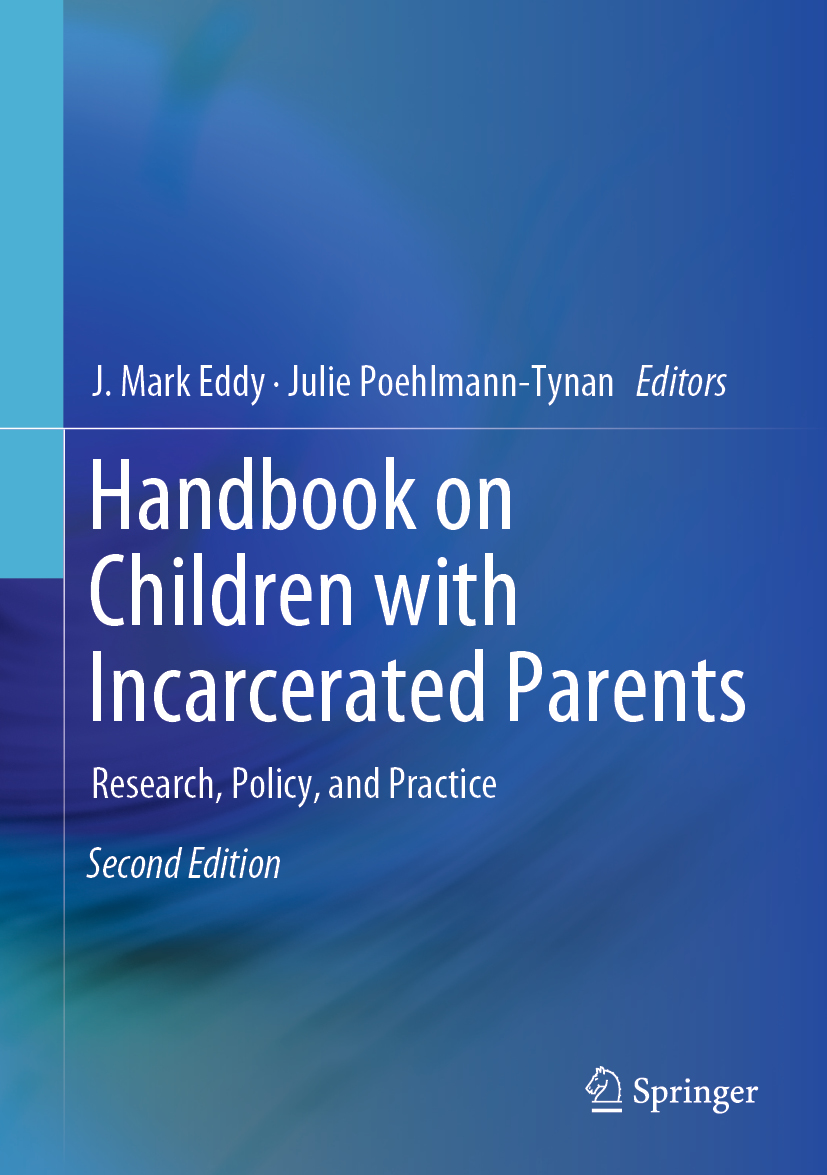Editors
J. Mark Eddy and Julie Poehlmann-Tynan
Handbook on Children with Incarcerated Parents
Research, Policy, and Practice
2nd ed. 2019
Editors
J. Mark Eddy
Family Translational Research Group, New York University, New York, NY, USA
Julie Poehlmann-Tynan
Human Development & Family Studies, University of Wisconsin-Madison, Madison, WI, USA
ISBN 978-3-030-16706-6 e-ISBN 978-3-030-16707-3
https://doi.org/10.1007/978-3-030-16707-3
Library of Congress Control Number: 2019936276
Springer Nature Switzerland AG 2019
This work is subject to copyright. All rights are reserved by the Publisher, whether the whole or part of the material is concerned, specifically the rights of translation, reprinting, reuse of illustrations, recitation, broadcasting, reproduction on microfilms or in any other physical way, and transmission or information storage and retrieval, electronic adaptation, computer software, or by similar or dissimilar methodology now known or hereafter developed.
The use of general descriptive names, registered names, trademarks, service marks, etc. in this publication does not imply, even in the absence of a specific statement, that such names are exempt from the relevant protective laws and regulations and therefore free for general use.
The publisher, the authors and the editors are safe to assume that the advice and information in this book are believed to be true and accurate at the date of publication. Neither the publisher nor the authors or the editors give a warranty, expressed or implied, with respect to the material contained herein or for any errors or omissions that may have been made. The publisher remains neutral with regard to jurisdictional claims in published maps and institutional affiliations.
This Springer imprint is published by the registered company Springer Nature Switzerland AG
The registered company address is: Gewerbestrasse 11, 6330 Cham, Switzerland
To children with incarcerated parents, in awe of your strength, resilience, and perseverance.
Foreword
I am honored to pen the foreword to the second edition of Handbook on Children with Incarcerated Parents: Research, Policy, and Practice. As a researcher who investigates family stabilization/destabilization as mothers reenter from prison and who writes about children with parents in the criminal justice system, as a professor who teaches a course on children with parents in the criminal justice system, and as a practitioner who works with a local reentry coalition, If find the material covered in this second edition to be tremendously valuable. It is certainly timely given the current political climate and the increase in the number of children with parents involved with the criminal justice system in the USA.
A distinctive aspect of this handbook is that the editors have assembled an interdisciplinary corpus of scholarship from authors who conduct research, design intervention programs, and contribute to social policy initiatives on children with parents in the criminal justice system. Each author does a notable job of addressing the critical clinical and developmental issues that children face when their parents are arrested, convicted, sentenced, incarcerated, and return home; each does an impressive job in identifying gaps in the research, offering suggestions on areas ripe for subsequent research, and pointing us to new directions for research and social policy initiatives. Furthermore, the authors situate their research, their interventions, and their social policy initiative suggestions in a contextualenvironmentalecological theoretical framework that considers the profound influence of sociopolitical history, socioeconomic status, race and ethnicity, age, and gender on childrens outcomes when parents are incarcerated. The authors challenge those of us in the field to move beyond utilizing a unidimensional approach to measuring and interpreting the effects of parental incarceration on childrens outcomes and well-being to embracing a multilayered, dynamic, and changing-systems approach.
As a field, we are encouraged by Sykes and Pettit (Chap. ), to consider children who enter the foster care system as a result of parental incarceration, as they represent a hidden and growing subpopulation of children with parents in the criminal justice system.
In conclusion, as I read the chapters in this handbook in preparation for writing this foreword, I was reminded of two contemporary issues that have intersected with my life this past summer. One, while home in Alabama this summer, I had the opportunity to visit the Lynching Memorial in Montgomery, Alabama, and two, I have watched as the recent crisis of unaccompanied immigrant minors and the imprisonment of their parents and the zero tolerance policy of this current administration has unfolded, as discussed by Poehlmann-Tynan, Sugrue, Duron, Ciro, and Messex (Chap. ) articulate so well. Children of color and their families experience the spillover effects of the incarceration of their loved ones. Unfortunately, for some children of color, parental incarceration becomes a normative developmental experience rather than a non-normative developmental experience.
I am encouraged by the solutions that the intervention research chapters (Chaps. ) offer to move us forward as researchers, as practitioners, and as advocates. Collectively, we must take a systems approach to mass incarceration and the resulting inequalities. There are practical and doable solutions that range from focusing on the building of human capital to increasing employment opportunities for those returning home, while simultaneously providing supports for children and families of the incarcerated. I applaud the editors, J. Mark Eddy and Julie Poehlmann-Tynan, for their continued persistence in raising the issues and plight of children with parents in the criminal justice system, both of which are especially well illuminated in this second edition of Handbook on Children with Incarcerated Parents: Research, Policy, and Practice.
Yvette R. Harris
Oxford, OH, USA
Acknowledgements
It has been over a decade since we worked together on the first edition of this volume. Returning to work on a new draft has provided us the opportunity not only to see how much the field has changed, but also to reflect on how our lives have changed, particularly in terms of our children and our stance toward activism.
Our children who were young the first time around are now either adults or are moving into adulthood. There are new children in both of our lives, including grandchildren for one of us and stepchildren for the other. Our experiences with our own children and families have taken place with each of us having the privilege to be free, where we could see our children each day (when they were young), walk with them to school, play together and watch them play with family and friends, eat dinner together, and read with and tuck them into bed at night. We are deeply appreciative for each of these moments. They have changed our lives for the better.
As these changes in our own families were occurring, each of us continued to work with incarcerated parents and their families in our respective communities. Those experiences strengthened our commitments toward using findings from our research and intervention efforts to promote social justice. As a result, our research has become more policy-relevant and our dissemination efforts have been increasingly focused on attempting to make positive change, not just for individual children and families affected by incarceration, but also for communities and society at large. Mass incarceration is a significant contributor to inequality and instability in the USA and in other countries as well, and there is much work to do to raise awareness about this and to change it. We see the tragic effects on a daily basis, and we hope to inspire others to work toward change, too.

